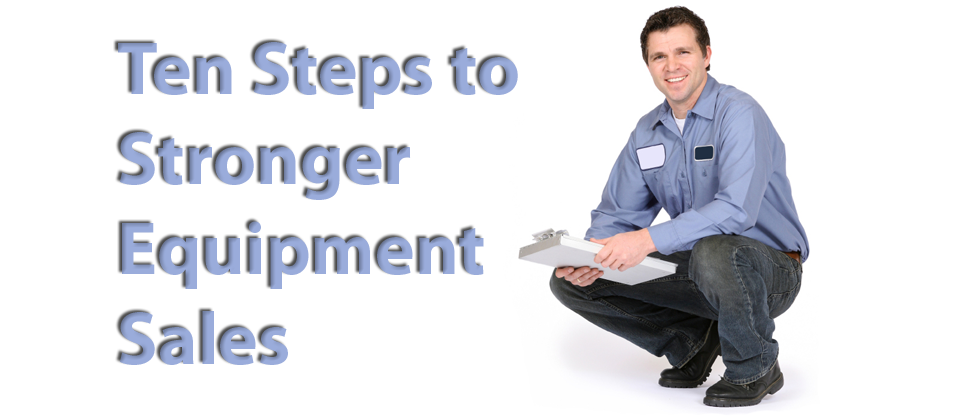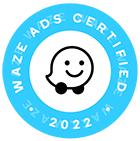
By: Richard Rutigliano, PriMedia Inc.
It’s not easy selling anything these days, but high-performance home comfort equipment is one product category that is well suited to this challenged economy. Companies that innovate effectively and leverage advanced technology can maintain sales – or even grow them – by tapping consumers’ desires to curb their monthly expenses.
Recent surveys reveal considerable consumer interest in saving energy at home. A 2011 study by the Consumer Federation of America revealed that 96 percent of Americans think that improved appliance efficiency is important for personal financial reasons. The Better Homes and Gardens 2011 Consumer Preferences Survey showed that the feature that consumers want most in their next home is high-efficiency heating and cooling systems. A 2010 survey by the Shelton Group indicated that 63.8 percent of consumers are interested in owning or renting an energy-efficient home.
“Now more than ever, Americans have a deep desire to be in charge of their lives, and seeing utility bills go down $10 to $20 a month brings a lot of peace of mind,” said Suzanne Shelton, president of the Shelton Group. “It’s a huge motivator.”
As encouraging as those results are, there is sobering news too. A separate Shelton Group survey identified an “apathy gap,” meaning that customers are willing to tolerate a hefty increase in their energy bills before they are motivated to spend on conservation. Another obstacle is the looming expiration of the federal tax credits for energy efficiency at the end of 2011.
The best approach going forward is to execute a comprehensive strategy that combines outreach, targeted marketing and purposeful use of customer incentives. Here are 10 ideas that can improve your equipment sales in 2012 and beyond.
1. Innovate.
Consumer attitudes and marketing tools have evolved so quickly in recent years that companies cannot afford to sit still and rely on what’s worked in the past. Look at what your competitors are doing and what is working in other retail sectors. Develop new strategies. Take advantage of new tools.
2. Be proactive on rebates and credits.
Consumers are tuned in to value. Satisfy them by being a step ahead on all their incentive opportunities. Maintain a comprehensive list of offers from manufacturers, utilities and government agencies and update it regularly as incentives are added or expire. Mention incentives as you discuss the customer’s equipment options to demonstrate your awareness and your commitment to helping them save. Provide checklists and documentation to make it easier for them to claim rebates and credits.
3. Offer energy audits.
Homeowners can get free or low-cost home energy audits from utilities, state agencies and your competitors. Get certified to perform audits, or else partner with a company that is. Should your customer go elsewhere for an audit, your chances of selling them equipment will be greatly diminished. By missing the energy audit bandwagon, you are passing up an invaluable opportunity to get their attention, inventory their comfort equipment, and position yourself as their energy use expert. Don’t let that happen.
4. Update your image.
When homeowners decide to reduce their energy costs, they are likely to seek out an energy conservation specialist. Be sure to depict yourself that way. Talk about energy conservation every chance you get: on your website, on your trucks, in your newsletter, in your message on hold. You have a limited number of opportunities to make impressions with customers and prospects, so make every one count. It’s not enough just to possess the expertise; you have to sell the image. Don’t expect people to read between the lines.
5. Be aggressive with loyalty rewards.
Consumers love being rewarded when they spend money. With a flexible loyalty program, you can adjust your points to reward the most desired customer behaviors. If equipment sales are vital to you, offer tempting merchandise prizes and ensure that a major equipment purchase will bring customers close to earning the most desirable reward items. When you’re selling to an existing customer, the salesman should know their rewards points total and mention how many points they’ll earn on the installation. It’s extra leverage that could help with an up-sell.
6. Proactively promote efficiency.
Develop a clear, powerful message about energy efficiency as a smart lifestyle choice and repeat it loudly and often. The company newsletter is a great venue for this message. Publish a special edition that focuses squarely on the benefits of high efficiency. A blog is another great vehicle for this message. Write blog posts about how smart and sensible it is to reduce energy consumption, and then use Facebook and Twitter to direct readers to the blog. Living more economically is a very popular concept now. Be a forceful advocate.
7. Provide a great sales experience.
Develop a plan for educating customers about the benefits of high efficiency and explaining their options. Plan to get them excited about how a new system can improve their comfort and lower their household expenses. Know the advantages and disadvantages of every equipment choice and be prepared to discuss each one candidly. Anticipate every question and be ready to answer it instantly and completely with solid, well-sourced information. Bring a nice sales kit. Be prepared with customer references.
8. Offer bargains.
Customers love deals, so make sure to offer them. Create coupons, and then post them on your website, mail them to customers, include them in the newsletter, and announce them on Facebook.
9. Improve your targeting.
Use home energy audits and your data on past installations to develop a clear picture of where the outdated equipment is within your customer base. Develop a strategy for targeting customers with highly relevant equipment offers.
10. Make your website an information hub.
You can boost sales within your base and beyond it with strong information on your website. Develop great copy about the value of high-performance equipment, so that people can simultaneously get enthused about upgrading and form a good impression of your company. Provide detailed information about the brands you install and highlight some of the most advanced products. Talk about the qualifications of your installers and the importance of expert installation work. Provide links to helpful resources, such as key pages on the Energy Star® and Department of Energy websites. People are more likely to choose you if they perceive you as an authority on energy conservation.
One final piece of advice is to gather customer testimonials and publish them on your website, your Facebook page, and in your newsletter and sales kit. A few strong recommendations for your company can give a customer the confidence to make their big purchase with you.
Your sales team needs every advantage they can get in this challenging environment. Seize any opportunity to help them thrive.
Richard Rutigliano is President of PriMedia, Inc., a full-service Advertising/Integrated Marketing Communications/New Media firm with offices in New York, Boston, and Philadelphia.















